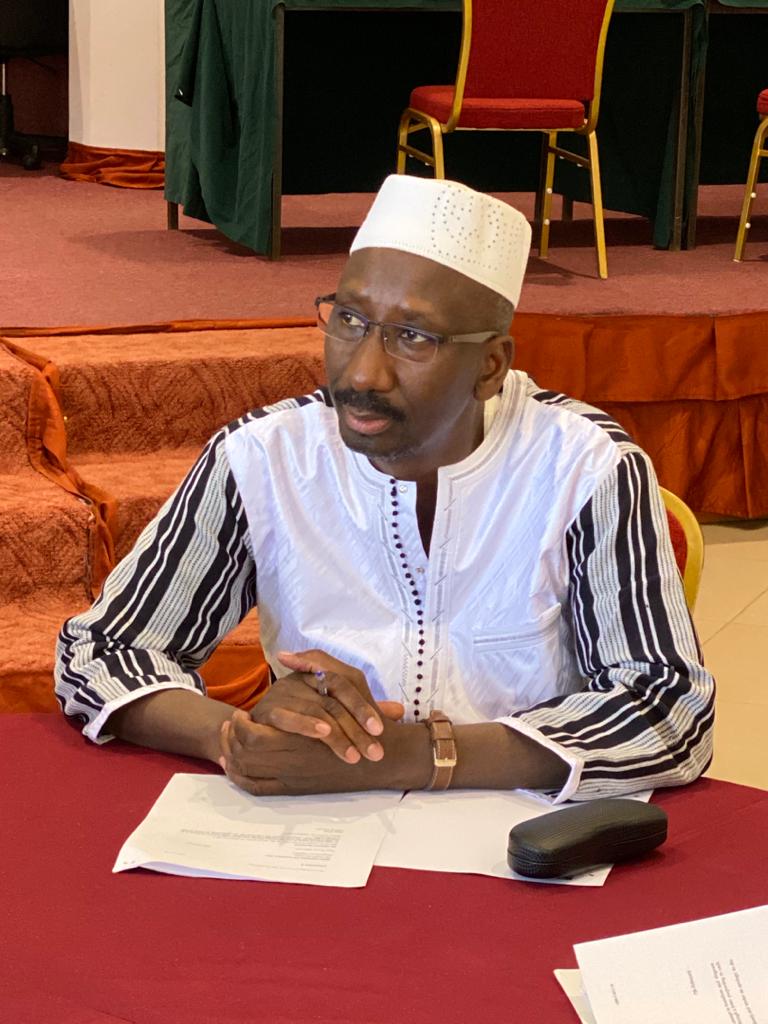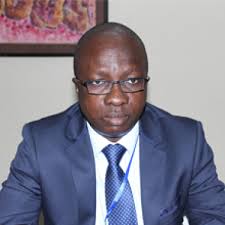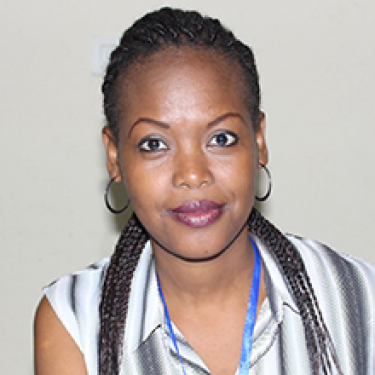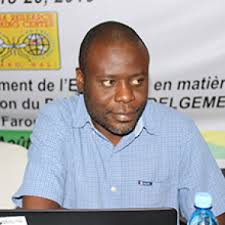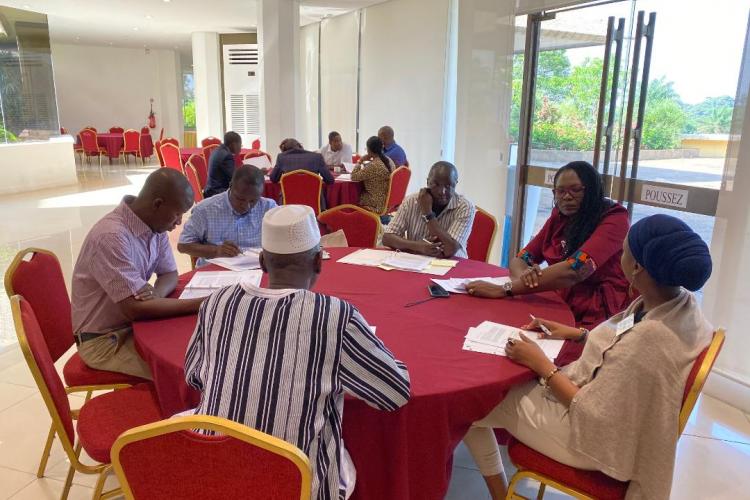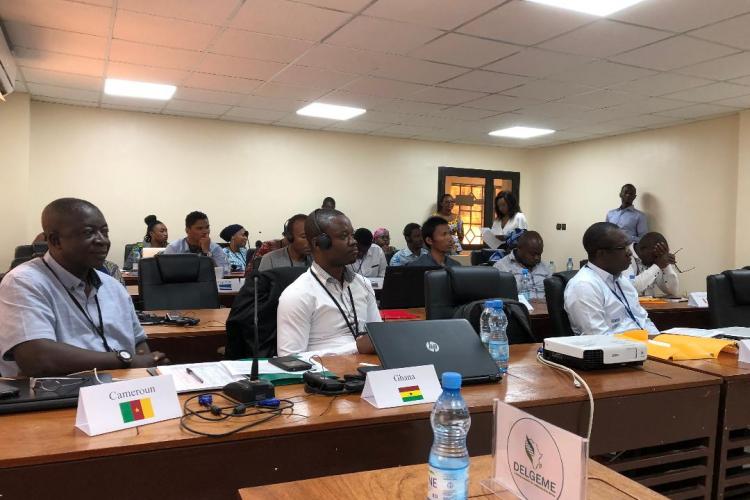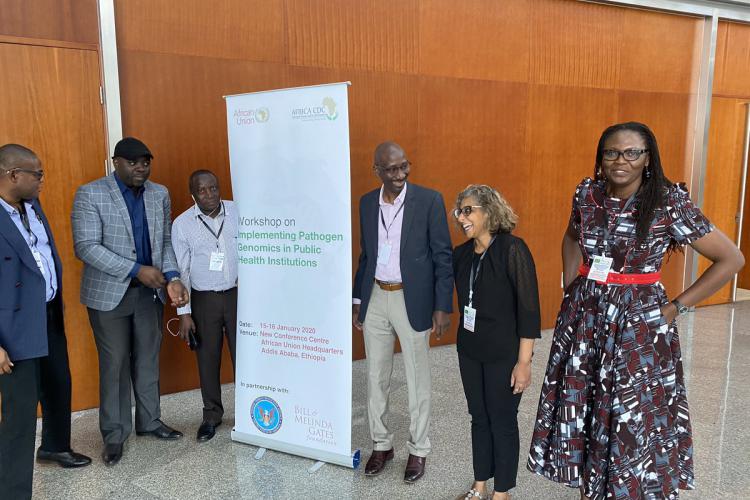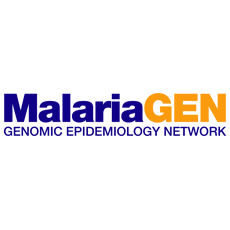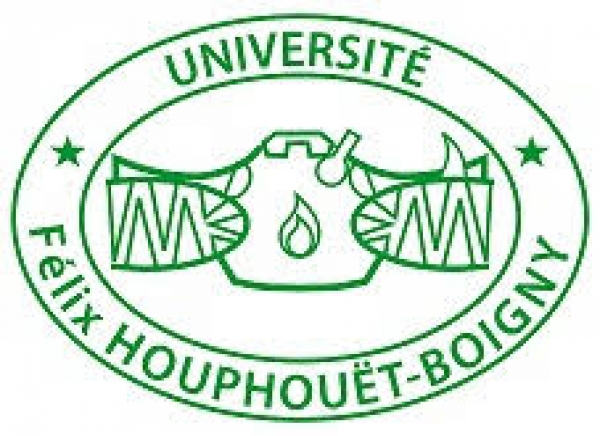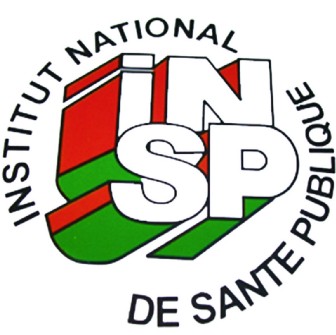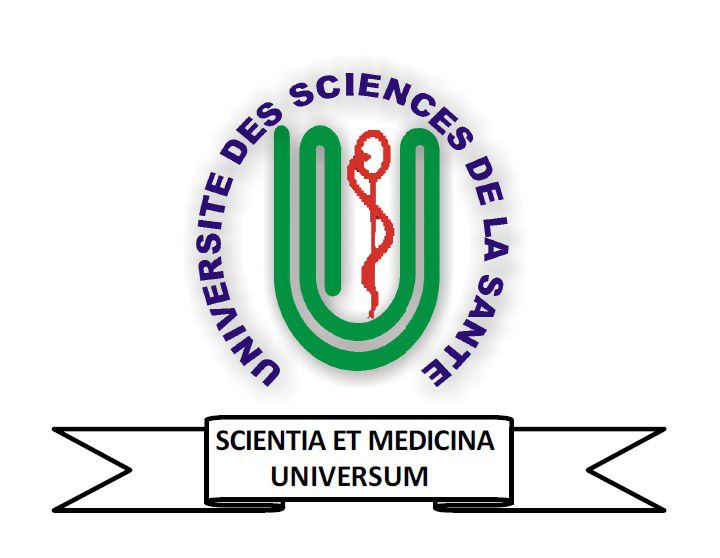PDNA-GEME
Malaria remains a leading cause of morbidity and mortality in sub-Saharan Africa (sSA). While many interventions have been put in place to address this burden of disease, recent reports suggest that progress has stalled due to several factors including reduced funding and decreased efficacy of well-established interventions [2-4]. This has led to the need to look beyond traditional approaches to malaria control by harnessing recent advancements in sequencing and genotyping technologies that offer comprehensive genomic data. Uptake of genomics information by most National Malaria Control Programs (NMCPs) has been very slow due to lack of capacity to generate, analyze and utilize the genomics data in policy and decision making. In addition, there is limited communication between the African Scientists conducting genomics studies on the continent and the NMCPs in their countries. To further contribute to significantly reduce malaria mortality and morbidity we intend to i) Increase the understanding and knowledge of scientific concepts of malaria molecular surveillance in sSA NMCPs and ii) Increase the uptake of genetic data & indicators by NMCPs & MoHs (integrated with epidemiological data) to make informed decisions and policies for malaria elimination. The following will be clear indications that the above goals are being achieved i) evidence of NMCPs plans on collecting biological samples for genetic data generation in their 5-year plans; ii) measurable increased knowledge and capacity within NMCPs to access, interpret and utilize genomics data to inform programmatic activities and policies; iii) increased engagement of NMCP and other stakeholders in planning and implementation of molecular surveillance. A number of carefully crafted metrics will be devised to measure our progress including counting the number of NMCP staff trained per country and per year in concepts of malaria molecular surveillance (MMS), the number of workshops delivered across the consortium, the number of NMCPs reporting molecular malaria indicators on a yearly basis.
2nd Workshop on Malaria Molecular Surveillance - PDNA GEME
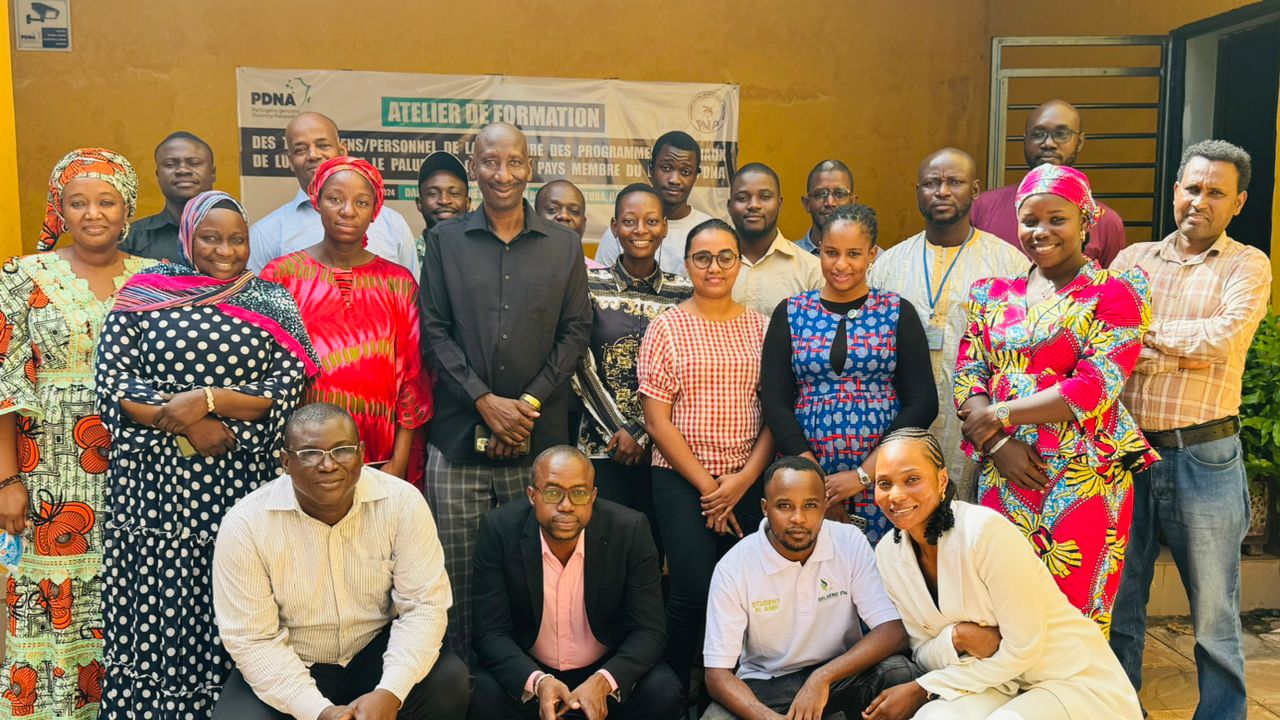
From October 21 to 26, 2024, the Project (PDNA GEME) organized an intensive training workshop on molecular surveillance of malaria for laboratory technicians of the PDNA’s countries National Malaria Control Programs (NMCPs). This workshop, led by Dr. Mamadou Tékété and Dr. Hinda Doucouré at the PDNA premises in Sotuba, aimed to equip participants with the skills needed to strengthen genomic malaria surveillance in Africa. The training was conducted under the supervision of Professor Abdoulaye Djimdé, President of the PDNA.
Participants and Objectives:
Participants from seven African countries including Cameroon, Gabon, Kenya, Mali, Madagascar, Niger, and Tanzania benefited from immersion in advanced molecular techniques for malaria detection and surveillance. The main objectives of this training were to:
- Strengthen the knowledge and skills of technicians in molecular biology applied to malaria.
- Train on diagnostic tools for genetic resistance of the Plasmodium falciparum parasite.
- Improve the interpretation and analysis of results for optimal management of malaria cases.
Content and Course of Training 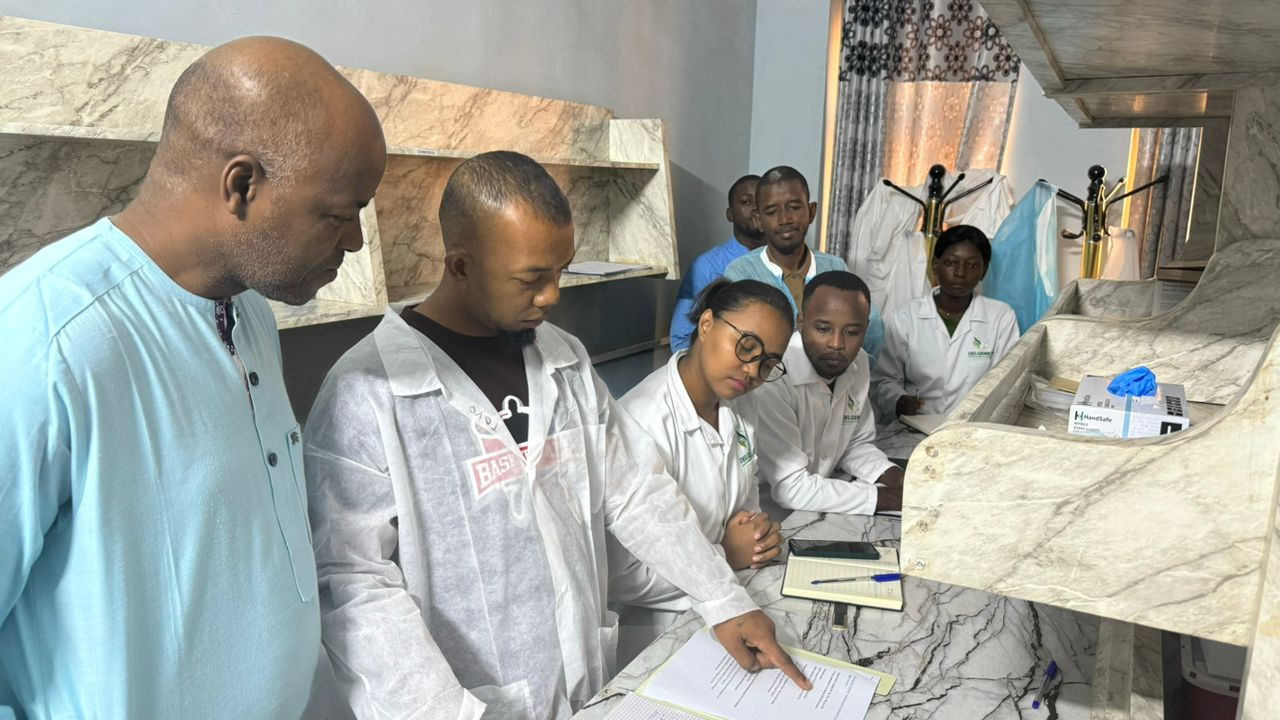
The training week covered a wide range of laboratory techniques and practices, with the following highlights:
· Introduction to Molecular Surveillance Tools: Overview of new technologies applied to malaria surveillance.
· Sample Collection: Technique for realizing dried blood spot specimens (confetti), allowing optimized conservation and analysis.
· DNA Extraction: Methods for extracting DNA from dried blood spot.
· PCR (Polymerase Chain Reaction): Introduction to the principles and applications of PCR to detect molecular markers of resistance to antimalarials drugs.
· Detection of Resistance Markers: Use of PCR to identify the pfcrt and pfmdr1 genes mutations, responsible for resistance to certain antimalarial treatments.
· Identification of Plasmodium Species: Techniques for detecting different Plasmodium species, essential for surveillance and diagnosis.
· Interpretation of Results: Training on the analysis and interpretation of PCR results in order to make clinical decisions and inform public health actors.
Testimonial
The training was particularly enriching for the participants. According to Gemandze Ntsah Kelly, a participant from Cameroon:
“I am happy to have participated in the workshop on “Molecular Aspects of Malaria” organized by PDNA. The workshop covered various topics including the life cycle of the malaria parasite, diagnostic and treatment options. I particularly enjoyed the practical session where we learned how to identify the Pfcrt and Pfmdr1 resistance genes of Plasmodium falciparum and how to perform molecular correction with the Ta99 microsatellite. I look forward to applying the knowledge and skills acquired during this interactive training to my current studies and future projects.”
Conclusion and Presentation of Certificates
At the end of this training, each participant received a certificate of recognition. The satisfaction of the participants symbolized the success of the workshop, and their commitment to the fight against malaria in Africa. This workshop represents a significant step forward for NMCPs and for the capacity of African countries to monitor and control malaria more effectively. This type of training demonstrates the commitment of the PDNA in strengthening local skills for a better fight against infectious diseases in Africa.
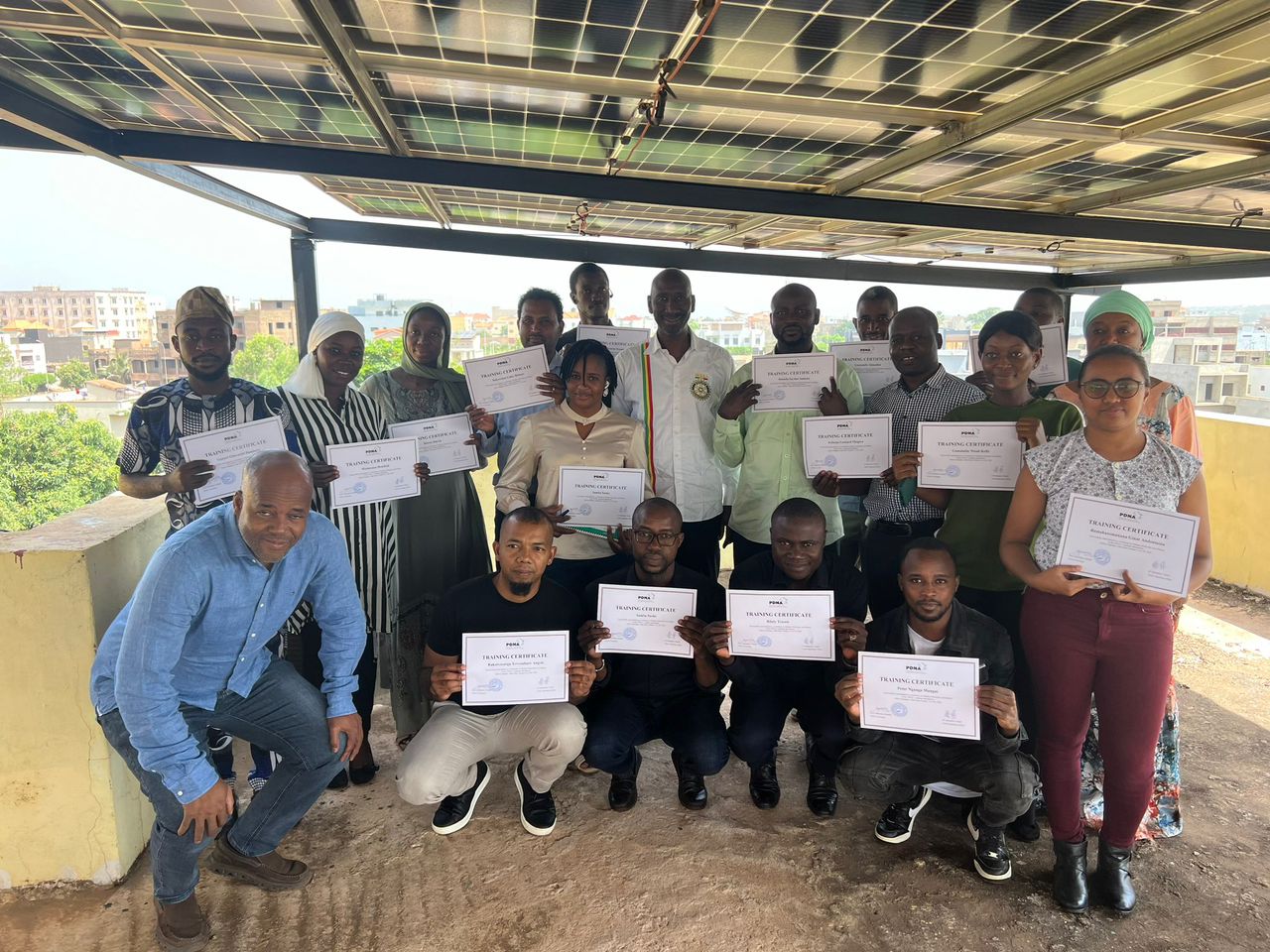
Within the framework of the PDNA-GEME project and concerning the assigned objectives, several meetings were organized in order to inform the national and international opinion of the start of the project activities as well as to present the action plan. These activities fall within the framework of capacity building.
Initiating engagement with PDNA researchers
An online meeting was organized to inform PDNA researchers, who are also the sub-beneficiaries of this investment.
Pr. Abdoulaye Djimdé, President of the network, gave a presentation on the final scope of the project, its objectives and expected results.
The timetable and final budget were presented to the group. Comments from all sides were received.
Project presentation
A meeting was organized to share the progress of the project with the PDNA Board of Directors and network members:
1. Fifteen students (including 4 women) from 7 PDNA institutions have been sponsored to attend the 2021 annual online meeting of the American Society of Tropical Medicine and Hygiene. Their registration fees were paid by the network.
2. Staff recruitment: Job offers were published online to fill the positions of project manager, bilingual administrative assistant and logistician. Dozens of applications were received and assessed in three selection phases, culminating in personal interviews. All three positions were filled. Through the same process, a CPE agent was recruited for the leader. To date, the staff have been recruited and are operational.
3. Suitable premises in Sotuba have been identified, furnished and equipped to meet the needs of the network's activities.
Community and public commitment
The first engagements with the directors and staff of the National Malaria Control Programs in Mali, Ghana and Burkina Faso were made.
This meeting presented the project concept and launched the iterative engagement process. To this end, a mapping of NMCPs in sub-Saharan Africa and their key contacts was initiated.
A meeting was held with the PDNA Board of Directors, as well as a PDNA GEME project kick-off meeting with IPs and PNLP members in Addis Ababa, Ethiopia.
The Addis meeting was also an opportunity to pilot the needs assessment survey tool.
Bill & Melinda Gates Foundation Malaria Genomics Meeting
This meeting was held from August 2 to 4, 2022 at the African Union in Addis Ababa. It brought together scientists and NMCP managers and offered a unique opportunity to initiate discussion on how to bridge the gap between research and policy-making for malaria elimination. The meeting was widely attended by scientists and NMCP managers. It was attended by around 30 people from the network's 16 member countries.
A review of tools and initial engagement activities with NADP IPs was carried out. The PDNA IPs gave very good feedback on the GEME study tools. Many IPs responded to the team, providing additional information on the tools and on ongoing experiences in their countries.
The questionnaire designed to assess the knowledge and needs of NDPs in terms of genetic tools was drawn up and validated.
Ethical approval for the project was granted, and the team prepared for project data collection by conducting 17 in-depth interviews in the 16 countries with NDP IPs. The qualitative study aimed to explore researchers' experiences of involving NMCPs and how they make their research accessible to NMCPs. Interviews were recorded and transcribed. All recorded interviews were processed verbatim to produce transcripts to be used for coding and analysis.
Work was carried out by the Ghana team to develop the manuscript and protocol with comments and contributions from all PDNA IPs, who are co-authors.
The needs assessment for most countries was carried out from January onwards, although around two countries completed their surveys in December 2022. French-speaking countries were coordinated by the Mali team's CPE, while the Ghana team led the English- and Portuguese-speaking countries.
Progress:
From January 29 to February 6, 2023, the PDNA team in Mali participated in the elaboration of the National Strategic Plan 2023 to 2028 of the PNLP Mali. This participation and the expertise of the PDNA team were well appreciated by the PNLP director, and strengthened relations between the two parties.
Qualitative analysis workshop by the Ghana team
The needs assessment for most countries was carried out from January onwards, although around two countries completed their surveys in December 2022. The French-speaking countries were coordinated by the Mali team's CPE, while the Ghana team led the English- and Portuguese-speaking countries.
The Ghana team organized a four-day analysis workshop to analyze the study's qualitative data and draft the results. Two independent qualitative experts took part in this workshop. They also drafted a qualitative manuscript. Following the analysis, the Ghana team is also leading the development of a manuscript based on the qualitative data.
Quantitative analysis. The needs assessment survey was also analyzed and training needs identified. The technical responses were successfully analyzed to identify the training needs of the NMCPs.
Some series of engagement activities :
May 2023
A virtual meeting with PDNA's principal investigators was organized to discuss the needs identified during the exploratory phase and to identify the capacities available within the group to carry out the training. The virtual meeting was very well attended and the principal investigators expressed their willingness to continue supporting the project's activities.
June 2023
A research dissemination forum was held at the University of Ghana's College of Health Sciences. The team designed and presented a poster with the objectives and results of the study at the college's research exhibition.
July 2023
A webinar was held on the development of guidance notes for PDNA principal investigators. This was a workshop to improve the skills of principal investigators to develop guidance notes from genomic data and to adapt guidance notes to the understanding of NMCPs and other malaria decision-makers.
September 2023
A presentation of the study results to the Grand Challenges was made in Dakar, Senegal. The project's research findings were presented at the annual Grand Challenges meeting.
November 2023
Completion of the installation of the genomics training laboratory at PDNA headquarters.
Training for National Malaria Control Program Directors from the 16 countries in the PDNA network
Context :
As we all know, health research is a key issue for the future of humanity. Past and present epidemics have shown the importance of having the right knowledge tools to meet the challenges of prevention and treatment. Against this backdrop, the PDNA network organized a workshop for National Malaria Control Program Directors from the 16 member countries from August 14 to 17, 2023 at the Millennium Hotel in Bamako, Mali.
Proceedings:
The opening ceremony was attended by the Minister of Health and Social Development, Colonel Assa Badialo Touré, the Director of the PNLP, Dr. Aissata Koné, and the President of the PDNA Network, Pr. Abdoulaye Djimdé, who gave a presentation of the project and its progress.
The Minister, who was very pleased, welcomed the participants and wished them every success in their work.
Following the opening ceremony, the proceedings unfolded as follows:
- presentations, followed by questions and answers ;
- group work, followed by plenary discussion;
- practical demonstrations of molecular biology experiments in PDNA laboratories.
All this helped to promote the effective use and integration of genomic data in NMCP malaria control and elimination activities.
Pr. Abdoulaye Djimdé offered a dinner to the participants, bringing the training to a close.



Activities planned/realized in 2024:
January to March 2024 :
- The newsletter describing PDNA-GEME activities was published.
- Manuscript on qualitative analysis submitted for publication to BMC Global Health.
March 2024:
- The first hands-on training of NMCP technical staff in molecular biology was completed. The workshop was very well received. A video was produced by the trainees and is available on the network's youtube.
- A second workshop will be organized in the second quarter for those who were unable to attend the first training session.
- A video has been produced on demystifying pathogen genomics.
- We intend to undertake closer engagement, either by the GEME NAAP leadership, or by the respective NAAP IPs, to promote deeper engagement with NMCPs and encourage the inclusion of Molecular Malaria Surveillance activities in national malaria control strategic plans.
- A symposium was organized at the Multilateral Initiative on Malaria (MIM) meeting in Kigali, Rwanda.
- We presented the progress of the PDNA - GEME at the World Malaria Day celebrations in our respective countries on April 25, 2024.
- Phase 3 of the project, the impact assessment, will begin in the third quarter of this year. It involves carrying out an impact assessment to determine the benefits that the project has derived from all the activities carried out to date. Phase 3 observers will be particularly interested in evidence of increased interaction between malaria genomics researchers and NMCPs, as well as evidence of use or plans to use genomics for malaria control interventions and policies.

